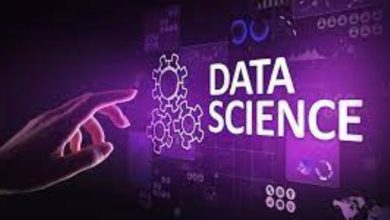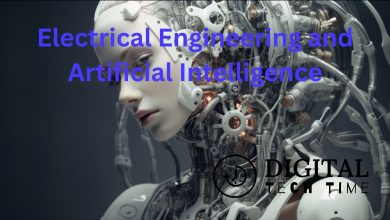Artificial Intelligence Topics for Essay: Exploring the Latest Trends and Developments
Artificial Intelligence Topics for Essay: Exploring the Latest Trends and Developments
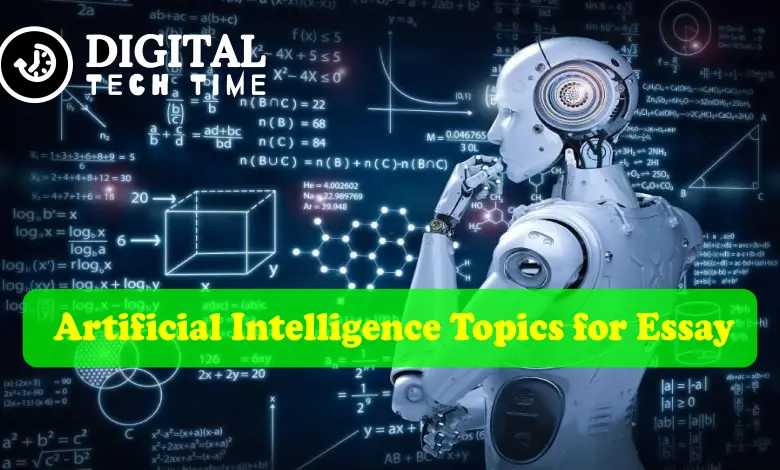
Artificial Intelligence (AI) has rapidly evolved, influencing various aspects of our lives. From businesses to healthcare, AI is making significant strides, bringing about innovations and transforming the way we operate. In this article, we will explore the latest trends and developments in AI, shedding light on its applications, challenges, and ethical considerations.
Artificial Intelligence (AI) is a fascinating field that has been around for a long time, but has recently gained more attention due to its potential to revolutionize various industries. AI is the simulation of human intelligence in machines that are programmed to think and learn like humans. It involves developing algorithms and models that enable machines to perform tasks that would normally require human intelligence. AI has a wide range of applications, including in healthcare, finance, transportation, and many others.
One of the most interesting aspects of AI is the range of topics that can be explored in essays. From the history of AI to ethical considerations and future applications, there is no shortage of topics to choose from. Students who are interested in AI can explore topics such as the development of AI, its impact on society, and the ethical implications of AI. They can also delve into specific applications of AI, such as natural language processing, machine learning, and computer vision.
Overall, AI is a fascinating and rapidly evolving field with a wide range of topics that can be explored in essays. Whether you are interested in the history of AI, its current applications, or its future potential, there is no shortage of topics to choose from. By exploring these topics, students can gain a deeper understanding of AI and its impact on society.
Key Takeaways
- AI has a wide range of applications in various industries and involves developing algorithms and models that enable machines to perform tasks that would normally require human intelligence.
- There is a wide range of topics that can be explored in essays about AI, including the history of AI, ethical considerations, and specific applications of AI.
- By exploring these topics, students can gain a deeper understanding of AI and its impact on society.
History of Artificial Intelligence
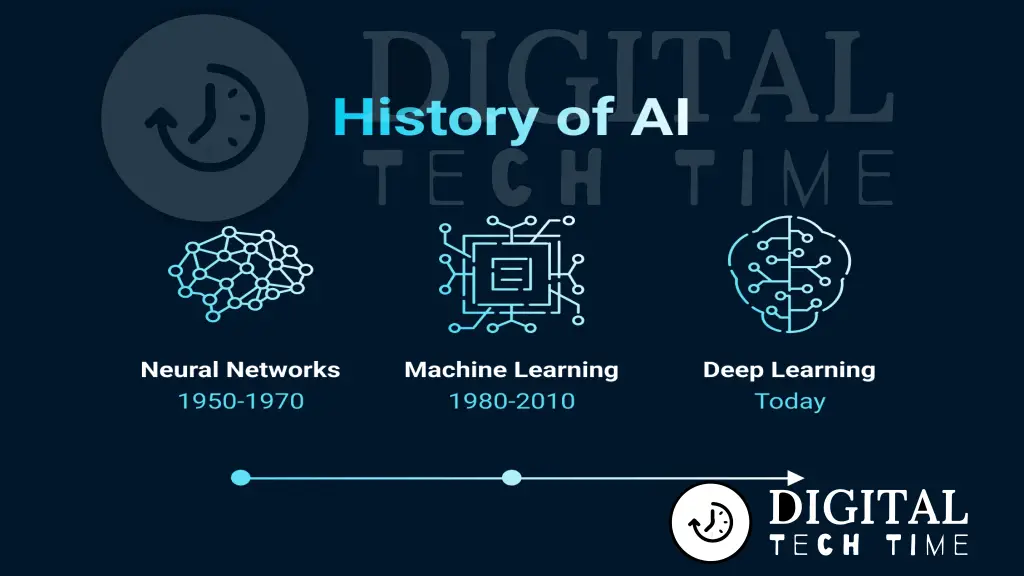
Artificial Intelligence (AI) is a field of computer science that involves the creation of intelligent machines that can perform tasks that typically require human intelligence, such as speech recognition, decision-making, and language translation. The history of AI dates back to the mid-20th century, when researchers began developing machines that could simulate human intelligence.
Early Foundations
The foundations of AI were laid in the 1950s, when researchers began exploring the possibility of creating machines that could think and learn like humans. The Dartmouth Conference of 1956 is considered to be the birthplace of AI, as it brought together a group of researchers who discussed the potential of creating intelligent machines.
During the 1960s, researchers made significant progress in the development of AI. They created programs that could perform tasks such as language translation, pattern recognition, and problem-solving. One of the most famous early AI programs was ELIZA, a chatbot that could simulate human conversation.
AI Winter
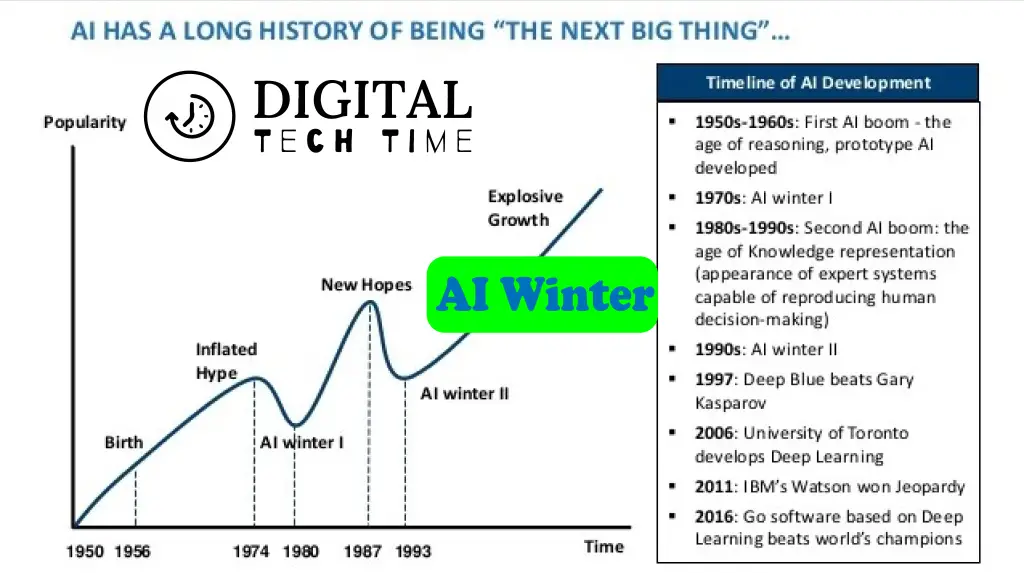
Despite the progress made in the 1960s, AI research hit a roadblock in the 1970s and 1980s. The lack of funding and the failure of some AI projects led to what is known as the “AI winter.” During this time, many researchers abandoned their work in AI, and progress in the field slowed down significantly.
Modern AI Renaissance
The modern AI renaissance began in the 1990s, when researchers developed new techniques for machine learning and data analysis. These techniques allowed machines to learn and improve their performance over time, leading to significant advances in areas such as speech recognition, computer vision, and natural language processing.
In recent years, AI has become increasingly sophisticated, with the development of deep learning algorithms that can analyze vast amounts of data and make complex decisions. Today, AI is being used in a wide range of applications, from autonomous vehicles and personal assistants to content creation and image recognition.
Understanding Artificial Intelligence
Artificial Intelligence (AI) is a rapidly growing field that involves the creation of intelligent machines that can perform tasks that typically require human intelligence, such as visual perception, speech recognition, decision-making, and language translation. AI is becoming increasingly important in today’s world as it has the potential to revolutionize the way we live, work, and interact with each other.
Definition of AI
AI can be defined as the ability of machines to perform tasks that would normally require human intelligence. This can be achieved through the use of algorithms, which are sets of instructions that tell a machine how to perform a specific task. AI can be divided into two main categories: narrow or weak AI and general or strong AI.
Narrow or weak AI refers to machines that are designed to perform a specific task, such as facial recognition, speech recognition, or playing chess. These machines are not capable of performing tasks outside of their specific domain and do not possess human-like intelligence.
General or strong AI, on the other hand, refers to machines that are capable of performing any intellectual task that a human can do. These machines possess human-like intelligence and can learn and adapt to new situations. However, the development of strong AI is still in its early stages and remains a topic of much debate and speculation.
Types of AI
There are several types of AI that are currently being developed, each with its own strengths and weaknesses. These include:
- Rule-based AI: This type of AI uses a set of predefined rules to make decisions and perform tasks. It is commonly used in expert systems and decision support systems.
- Machine learning: This type of AI uses algorithms to learn from data and improve its performance over time. It is commonly used in image recognition, speech recognition, and natural language processing.
- Neural networks: This type of AI is modeled after the structure and function of the human brain. It is commonly used in image recognition, speech recognition, and natural language processing.
- Deep learning: This is a subset of machine learning that uses neural networks with multiple layers to perform more complex tasks, such as image and speech recognition.
In conclusion, AI is a rapidly growing field that has the potential to revolutionize the way we live, work, and interact with each other. It is important to understand the different types of AI and their capabilities in order to fully appreciate the potential of this technology.
Applications of Artificial Intelligence
Artificial Intelligence (AI) has become an integral part of modern technology and has found its way into various fields. The following are some of the applications of AI:
AI in Healthcare
AI has become an essential tool in the healthcare industry. It has the potential to revolutionize the way healthcare is delivered, making it more efficient and effective. AI can be used to analyze patient data and provide personalized treatment plans. It can also be used to develop new drugs and therapies.
One of the most significant applications of AI in healthcare is medical imaging. AI algorithms can analyze medical images and detect abnormalities that may be missed by human radiologists. This can lead to earlier detection and treatment of diseases, improving patient outcomes.
AI in Business
AI has the potential to transform the way businesses operate. It can be used to analyze large amounts of data and provide insights that can help businesses make better decisions. AI can also be used to automate repetitive tasks, freeing up employees to focus on more complex tasks.
One of the most significant applications of AI in business is in customer service. AI-powered chatbots can provide customers with instant support, answering their questions and resolving their issues. This can lead to increased customer satisfaction and loyalty.
AI in Transportation
AI is also being used to improve transportation systems. It can be used to optimize traffic flow, reduce congestion, and improve safety. AI can also be used to develop autonomous vehicles, which have the potential to revolutionize the way we travel.
One of the most significant applications of AI in transportation is in logistics. AI can be used to optimize shipping routes, reduce delivery times, and improve efficiency. This can lead to cost savings for businesses and faster delivery times for customers.
In conclusion, AI has the potential to revolutionize various fields, including healthcare, business, and transportation. Its applications are vast, and it is expected to have a significant impact on the way we live and work in the future.
Ethical Considerations in AI
As AI continues to become more integrated into our lives, it is important to consider the ethical implications of its use. Here are two key ethical considerations in AI:
Bias in AI
One of the main ethical concerns with AI is the potential for bias. AI systems are only as good as the data they are trained on, and if that data is biased, the AI system will be biased as well. For example, if an AI system is trained on data that is predominantly male, it may not perform as well with female subjects. This can lead to real-world consequences, such as discrimination in hiring or lending decisions.
To combat this, it is important to ensure that AI systems are trained on diverse and representative data sets. Additionally, AI systems should be regularly audited to ensure that they are not exhibiting any bias.
AI and Privacy
Another ethical concern with AI is privacy. AI systems are often trained on large amounts of personal data, such as medical records or social media activity. This raises concerns about who has access to that data and how it is being used.
To address this, it is important to have clear regulations around data privacy and to ensure that AI systems are only collecting and using data that is necessary for their intended purpose. Additionally, individuals should have the right to access and control their own personal data.
Overall, as AI continues to become more integrated into our lives, it is important to carefully consider the ethical implications of its use. By addressing issues such as bias and privacy, we can ensure that AI is being used in a responsible and ethical manner.
Future of Artificial Intelligence
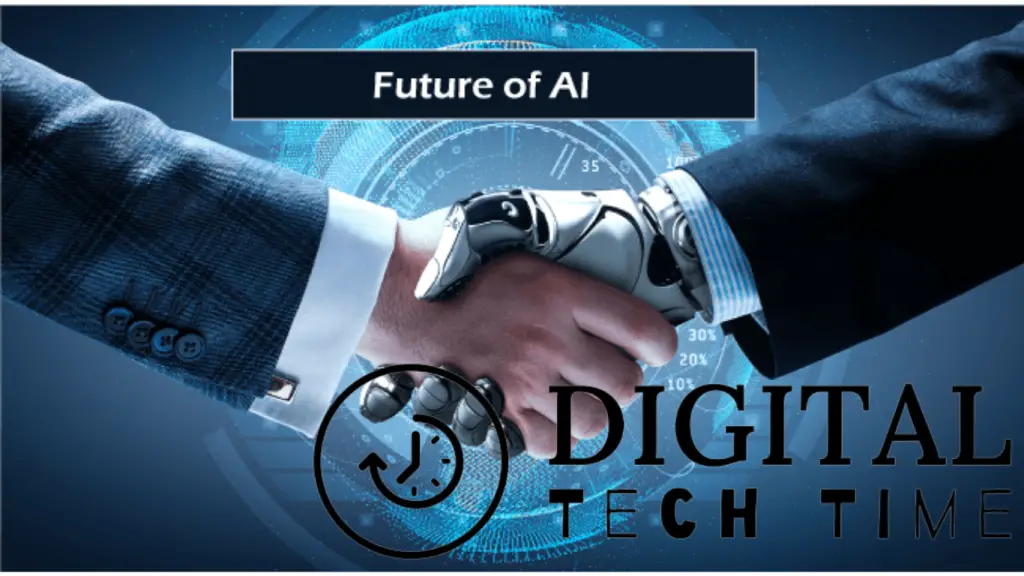
Artificial Intelligence (AI) has been growing at an unprecedented rate, and its future looks promising. The advancements in AI technology have brought about significant changes in various sectors, including healthcare, finance, and transportation. In this section, we will discuss the future of AI, focusing on its impact on the job market and the advancements in AI technology.
AI and Job Market
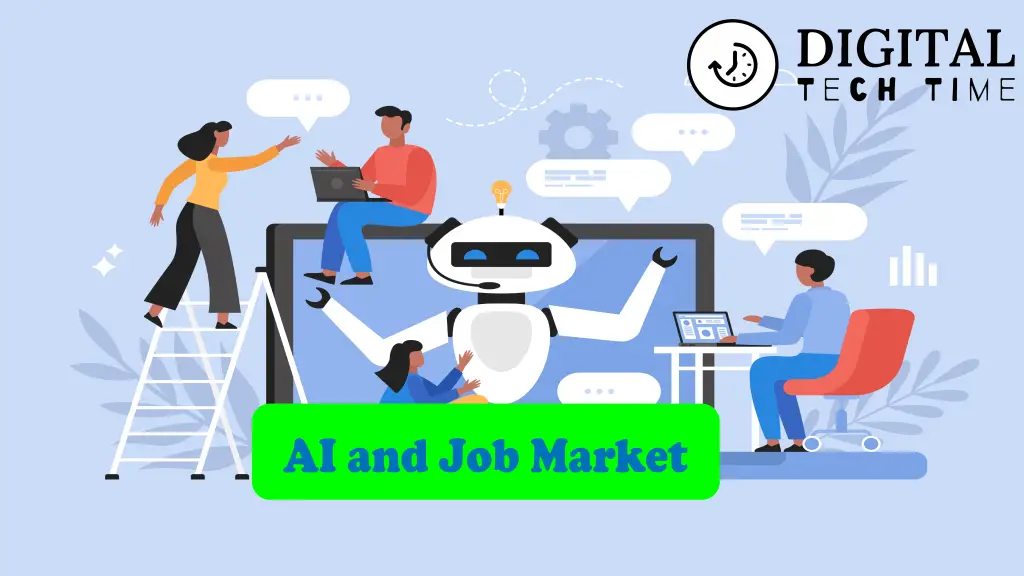
AI has the potential to revolutionize the job market, leading to the creation of new jobs and the elimination of some. According to a report by the World Economic Forum, AI will create 2.3 million jobs by 2020, while eliminating 1.8 million jobs. However, the report also suggests that the new jobs created will require a higher level of skills, making it necessary for employees to upskill or reskill.
AI will also lead to the creation of new industries, such as the development of AI-powered products and services. These industries will require a skilled workforce, creating new job opportunities for people with the right skills.
Advancements in AI Technology
The advancements in AI technology are expected to bring about significant changes in various sectors, including healthcare, finance, and transportation. In healthcare, AI-powered tools are being developed to assist doctors in diagnosing diseases and developing treatment plans. AI is also being used to develop new drugs, making the drug development process faster and more efficient.
In finance, AI is being used to develop predictive models that can help investors make better investment decisions. AI-powered chatbots are also being developed to assist customers in banking and insurance.
In transportation, AI-powered autonomous vehicles are being developed, which have the potential to reduce accidents and improve traffic flow. AI is also being used to develop predictive maintenance models, which can help reduce downtime and increase efficiency.
In conclusion, the future of AI looks promising, with the potential to revolutionize various sectors and create new job opportunities. However, it is also essential to address the challenges that come with the adoption of AI, such as job displacement and the need for upskilling and reskilling.
Conclusion
In conclusion, Artificial Intelligence (AI) is a rapidly growing field that has made remarkable progress in the past few years. The impact of AI can be seen in various sectors, including healthcare, finance, and education. The use of AI has improved the quality of services provided and has also helped in the development of leadership in these sectors.
As AI continues to advance, it is important to consider the ethical implications of its use. The contradiction between the advantages of AI and the limitation of human rights manifests in the field of personal privacy to a larger extent. It is important to ensure that the use of AI does not infringe on the rights of individuals.
Furthermore, the development of AI should be focused on creating narrow AI systems that can perform specific tasks rather than creating general AI systems, which can pose a threat to human existence. The use of AI in various sectors should be regulated to ensure that it is used for the betterment of society.
Overall, AI has the potential to revolutionize the way we live and work. However, it is important to ensure that its development and use are guided by ethical principles and regulations, to ensure that it benefits society as a whole.
More Information Artificial Intelligence
What are some interesting research topics in the field of Artificial Intelligence?
There are many fascinating research topics in the field of Artificial Intelligence (AI). Some of the most interesting ones include natural language processing, computer vision, machine learning, robotics, and neural networks. Other topics of interest include AI ethics, explainability, and transparency, as well as AI’s impact on society, economics, and politics.
What are some potential benefits and drawbacks of using AI in various industries?
The potential benefits of using AI in various industries are numerous, including increased efficiency, reduced costs, improved accuracy, and enhanced decision-making. However, there are also potential drawbacks, such as job displacement, bias and discrimination, privacy concerns, and safety and security risks.
How is AI changing the landscape of healthcare and medicine?
AI is revolutionizing healthcare and medicine in many ways, such as improving diagnosis and treatment, enhancing patient care and safety, and increasing efficiency and productivity. AI is also being used to develop new drugs and therapies, as well as to analyze large amounts of medical data to identify patterns and trends.
What ethical considerations should be taken into account when developing and implementing AI technologies?
There are several ethical considerations that should be taken into account when developing and implementing AI technologies, such as ensuring transparency and accountability, avoiding bias and discrimination, protecting privacy and security, and promoting social responsibility. It is also important to consider the potential impact of AI on society as a whole, as well as on individual users and stakeholders.
What are some of the most promising applications of AI in education?
AI has the potential to transform education in many ways, such as personalizing learning, improving student engagement and motivation, providing real-time feedback and assessment, and automating administrative tasks. AI can also be used to develop new educational tools and technologies, as well as to analyze and interpret educational data to inform policy and practice.
How can AI be used to improve sustainability and address climate change?
AI can be used to improve sustainability and address climate change in many ways, such as optimizing energy use and reducing waste, predicting and mitigating natural disasters, monitoring and protecting ecosystems, and developing new sustainable technologies and practices. AI can also be used to analyze and interpret environmental data to inform policy and decision-making.




